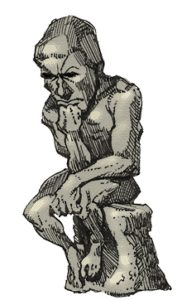I noticed recently that, for the first time, Ford took the grand prize in the Polk Automotive Loyalty Awards. That got me thinking about the nature of loyalty, and whether loyalty to a brand is qualitatively different from loyalty to a person.
Last year at the TED Conference, I did a talk on whether it is better to be loyal or to be honest. The premise, based on a wonderful book by Jane Jacobs, is that human society has developed two different, frequently conflicting, systems of ethics. One, which she calls the Guardian Syndrome, evolved to support the smooth functioning of a kingdom. The other, called the Commerce Syndrome, facilitates the workings of a marketplace. Not surprisingly, a kingdom requires a high degree of loyalty; a marketplace, honesty.
(If you are interested, here is a link to the video. It’s a six-minute course which I presented in the TED University forum.)
A brand is an interesting hybrid of commercial and guardian energy because a brand, while clearly an artifact of the marketplace, has no equity value unless it commands loyalty from it customers. This seems especially significant when you think about a brand like Ford. The Ford Motor Company is certainly a massive commercial enterprise, but because of the inherent danger connected with owning and using one of its cars or trucks, Ford necessarily assumes an important guardian role as well–a lesson that was undoubtedly burned into the brains of Toyota’s leadership this past year.
The idea that big brands, depending on the nature of their product or service, may be required to navigate by both guardian ethics and commercial ethics at the same time has huge story implications. Think about how the value of brands like Johnson & Johnson, Bank of America or BP has been undermined recently by a failure of each of these companies to uphold their guardian responsibilities. It has occurred to me that the vulnerability of some big food brands may also be a function of how well they embrace the conflict between their commercial interests and their guardian responsibilities. McDonald’s seems to have been wrestling with these issues somewhat successfully; Burger King less so. Pure candy brands, like M&M’s, seem to get a pass in the obesity wars because they have never pretended to be nourishing. Sugared cereals, which used to promote themselves to children as part of “a balanced breakfast,” seem more vulnerable.
My colleagues and I find ourselves thinking a lot these days about the relationship between brands and their audiences. I would love to know if this line of thinking–the conflict between guardian and commercial roles–resonates with you, and whether you can suggest other examples of brands that have embraced this conflict particularly well or poorly.
